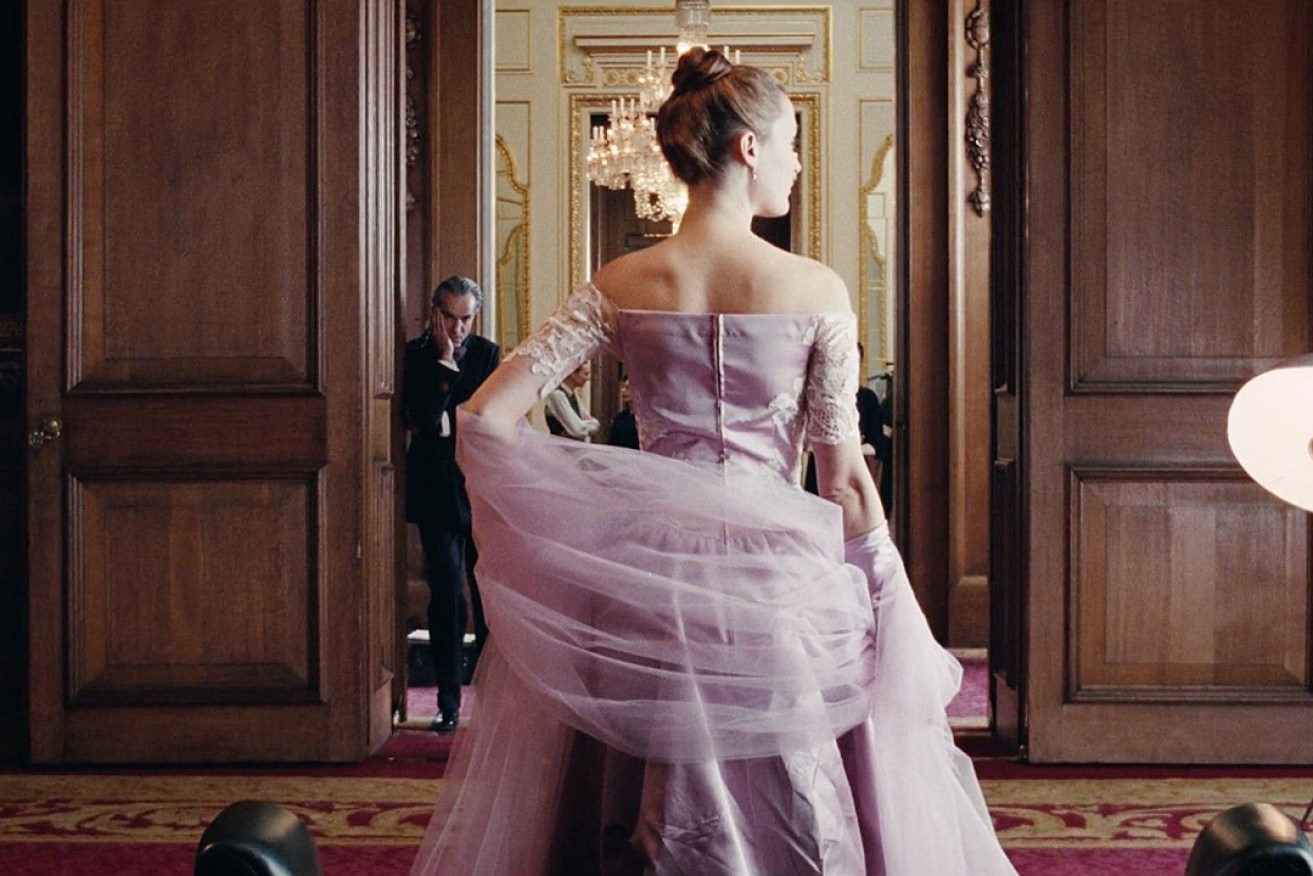Film review: Phantom Thread
Daniel Day-Lewis is a genius behaving badly in Paul Thomas Anderson’s exquisite yet claustrophobic film about clothing, wealth and the exercise of power, writes InDaily reviewer Rachael Mead.


Reynolds Woodcock (Daniel Day-Lewis) is a celebrated designer and dressmaker to the elite of Britain and Europe in the 1950s. He is a creative genius, ensconced in his elegant London atelier, who demands a very particular kind of tranquility in order to concentrate on his work.
Everyone else’s needs are subordinated to his own. His sister Cyril (Leslie Manville) runs both the business and household with a frigid decorum, ensuring that nothing in her brother’s life threatens his creative focus.
After a particularly important gown is delivered to its aristocratic owner, Reynolds drives to his country refuge and treats himself to breakfast at a hotel restaurant. He is served by Alma (Vicky Krieps), who takes his ridiculously long and exacting order. A connection sparks and when he asks her to dinner, she accepts.
So begins an unusual relationship in which Alma becomes his model and muse while learning how to navigate the minefield of Reynold’s demands. Her position is precarious. The power difference in the relationship is profound and Reynolds is loath to sacrifice his art, or any aspect of the lifestyle that supports it, to the needs of anyone else.
Alma, however, is not one to back down from a challenge, and her strategy to even the power balance in the relationship gives the film its thrilling and suspenseful Hitchcock-style flavour. Despite the lack of overt sex or violence, Phantom Thread is extremely dark, at times feeling very much like an Ibsen play where seemingly genteel people attempt to dominate one another with ruthless tenacity.
Phantom Thread is Anderson’s eighth feature and is an exquisite piece of film-making. In a similar style to The Master (2012) and Inherent Vice (2014), much of the story is told in close-up. The sumptuous details of Reynold’s world – the fabric, the sewing and the trappings of great wealth – all crowd the screen, lending an air of claustrophobia. We are trapped in his world, which as it turns out is quite a toxic place.
The performances of the three main characters are mesmerising, with Day-Lewis yet again proving himself a virtuoso of the silver screen. We can only hope that he changes his mind and this is not his last performance.
Jonny Greenwood’s score deserves special mention, its piano and strings perfectly pitched to the exquisite cinematography.
My sole issue with the film is that it represents yet another story using the over-worked trope of the narcissistic male genius behaving badly. Do we really need another of these? Despite the cliché factor, Day-Lewis inhabits his role with obsessive perfection, and Anderson keeps his audience enthralled to the very last minute with a startling tale of intense and toxic love.




